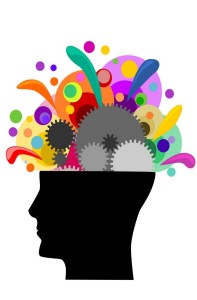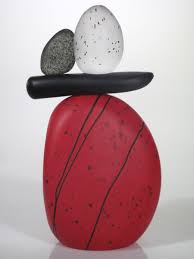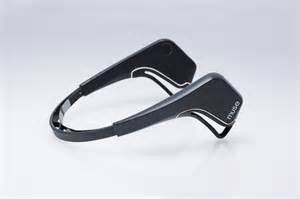What it Means to Live Authentically
 Leading an Authentic Life doesn’t mean spouting your ‘truth’ every time there appears an opening. It’s not the wisest move to be habitually giving your opinions at work or anywhere else for that matter. Yes, honesty matters. And what we are thinking may or may not be the arbiter of truth-ours or anyone else’s. Living with authenticity is different than this. It means to live a life that is genuine and principled.
Leading an Authentic Life doesn’t mean spouting your ‘truth’ every time there appears an opening. It’s not the wisest move to be habitually giving your opinions at work or anywhere else for that matter. Yes, honesty matters. And what we are thinking may or may not be the arbiter of truth-ours or anyone else’s. Living with authenticity is different than this. It means to live a life that is genuine and principled.
Consider the following characteristics of living genuinely:
- Being open to your moment to moment experience without distortions, denial, or invalidating yourself in some way or another.
- Enjoying a sense of dynamism and not feeling stuck or stagnant.
- Having a deep trust in your own intuition and ability to self-direct your own course in life.
- Knowing the responsibility and the freedom in responding to life with our full attention, rather than reacting impulsively or habitually to people or events as they occur.
- Adopting a creative approach to life, demonstrating flexibility rather than rigidity and closed-mindedness.
Of course, we may possess more of certain qualities than others. Embodying these qualities are certainly fluid on any given day. What’s vital is that they all can be cultivated by practicing these 5 suggestions:
- Be deliberate. Roy Baumeister, PhD (Univ. of Florida), states that “authenticity consists in being aware that you have choices and consciously choosing what you do.”
 A large part of living an authentic life involves being aware of your ability to chart your own course, choosing wisely the activities of your day to mirror your intentions and goals. While many things happen each day that we cannot control- we can choose our actions.
A large part of living an authentic life involves being aware of your ability to chart your own course, choosing wisely the activities of your day to mirror your intentions and goals. While many things happen each day that we cannot control- we can choose our actions.  Don’t be too deliberate. Without this seeming like a completely contradictory message, consider how you can be intentional in your behaviors without over analyzing and over thinking everything. Too much opinion polling and second guessing in our lives is sometimes called “analysis paralysis.” Deep down, there is an intuitive understanding of who you are as a person. Trust yourself.
Don’t be too deliberate. Without this seeming like a completely contradictory message, consider how you can be intentional in your behaviors without over analyzing and over thinking everything. Too much opinion polling and second guessing in our lives is sometimes called “analysis paralysis.” Deep down, there is an intuitive understanding of who you are as a person. Trust yourself.
Often good decisions are made when we don’t think about them too intensely. Go with your gut. Authenticity resides, in part, at the gut level.
- Practice mindfulness. (Of course) Deep attention creates moments of happiness not contingent on outcomes or external factors or manipulation of the environment. Mindfulness meditation enables you to become a curious, accepting, and nonjudgmental observer of your own experience.
 When you are truly connected to the present moment, there is less attachment to needing certain outcomes or trying to control the way things are. It puts things in perspective and increases connection with the whole of life.
When you are truly connected to the present moment, there is less attachment to needing certain outcomes or trying to control the way things are. It puts things in perspective and increases connection with the whole of life.
4. Cultivating Solitude. Peter Kramer, a researcher at Brown University notes that “quiet and time for the self are a big plus. If you’re worried about inauthenticity, there’s nothing like shutting the door.” While people differ on their individual needs for more or less quiet time to relax and recharge, there are significant benefits to taking a bit of quiet reflective time on a regular basis.
5. But Stay Connected. While it is always wise to check inwardly with ourselves, we can be positively informed and inspired by external factors and forces in our life too. Relationships are a vital part of living genuinely. We humans need each other. You can learn a great deal about yourself and your strengths through examining your interactions. Try noticing how you show up in relationship with others.The idea is to find the right balance between reflective solitude and connection with others that is healthy for you.

As Shakespeare penned in Hamlet:
“This above all: to thine own self be true,
And it must follow, as the night the day,
Thou canst not then be false to any man (or woman or person).”


 “We do not learn from experience…we learn from reflecting on experience.”- John Dewey
“We do not learn from experience…we learn from reflecting on experience.”- John Dewey

 There are lots of ways in which we as human beings can get caught under the vast net of stress in our lives. We oftentimes find ourselves feeling trapped by difficult circumstances and the attending feelings and thoughts that arise from them. All of this can create a sense of being overwhelmed and life at times can appear unmanageable. We then struggle and we suffer. Often times the root cause no longer exists but our coping strategies themselves have become problematic.
There are lots of ways in which we as human beings can get caught under the vast net of stress in our lives. We oftentimes find ourselves feeling trapped by difficult circumstances and the attending feelings and thoughts that arise from them. All of this can create a sense of being overwhelmed and life at times can appear unmanageable. We then struggle and we suffer. Often times the root cause no longer exists but our coping strategies themselves have become problematic. 



